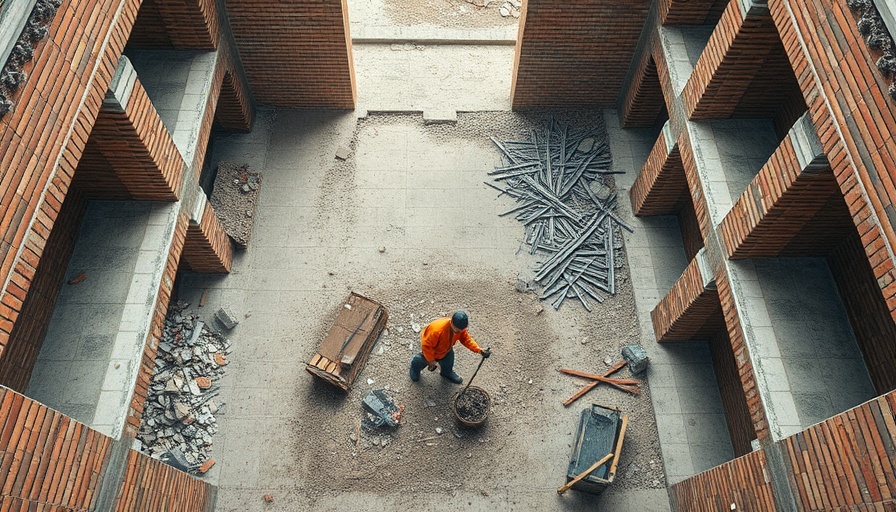
Understanding the Importance of Construction Waste Management
Construction waste, a significant by-product of the building industry, represents over 60% of the total waste generated in the UK. Effective management of this waste is essential not only for compliance with legal standards but also for improving a business's operational efficiency, enhancing its reputation, and reducing its carbon footprint. With growing awareness around sustainability, companies that develop robust waste management strategies can gain a substantial competitive edge in the industry.
Forecasting and Design Integration: Setting the Stage
Successful construction waste management begins long before the first nail is driven. It starts at the design and procurement stages where forecasting significantly curtails waste generation. When architects and builders collaborate from the get-go, they can plan for the types and quantities of materials required—preventing the common pitfall of over-ordering. Techniques such as using standardized components or prefabricated materials can drastically reduce scrap and packaging waste.
The Supreme Waste Hierarchy: Reduce, Reuse, Recycle
The mantra 'reduce, reuse, recycle' underpins the waste management strategy. By prioritizing reduction, companies can avoid waste from the outset through thoughtful procurement practices. The reuse of materials, such as salvaging bricks or fittings for future projects, helps stretch resources further. Recycling comes into play when reduction and reuse options have been exhausted, ensuring materials like plastics and metals aren't unnecessarily sent to landfills. Adhering to this hierarchy not only improves environmental outcomes but often translates to financial savings as well.
On-Site Segregation: A Key to Efficiency
On-site waste segregation enhances recycling efficacy and helps maintain compliance with regulations. By labeling bins for each waste type, such as timber, metal, and concrete, construction sites can minimize contamination and streamline sorting. Training workers in these practices not only fosters a culture of responsibility but also aids in measuring and reporting waste effectively—valuable metrics when meeting sustainability goals.
Smart Material Choices: Steering Clear of Waste
Material selection plays a crucial role in waste management. Choosing local suppliers can significantly reduce transport waste while opting for sustainable, recyclable, or reusable materials can mitigate long-term waste implications. Engaging with suppliers who offer take-back schemes or just-in-time deliveries further helps in managing inventory efficiently, ultimately safeguarding materials against damage or theft.
Complying with Regulations: Working with Licensed Waste Carriers
Adherence to regulations is paramount; thus, working with licensed waste carriers ensures that waste management practices not only meet legal standards but enhance project credibility. This partnership empowers businesses to mitigate risks associated with noncompliance and fosters trust among stakeholders, including clients and regulatory bodies.
Conclusion: Taking Action on Waste Management
Business owners, property developers, and facility managers have a prime opportunity to lead by example in the construction industry. Implementing these effective waste management strategies not only positions your business as a responsible entity but also champions sustainability and innovation. By taking actionable steps to reduce construction waste, you contribute to a greener future and often enjoy the added benefit of reduced operational costs. It's time to embrace these practical tips and transform your approach to construction waste management.
 Add Row
Add Row  Add
Add 




Write A Comment